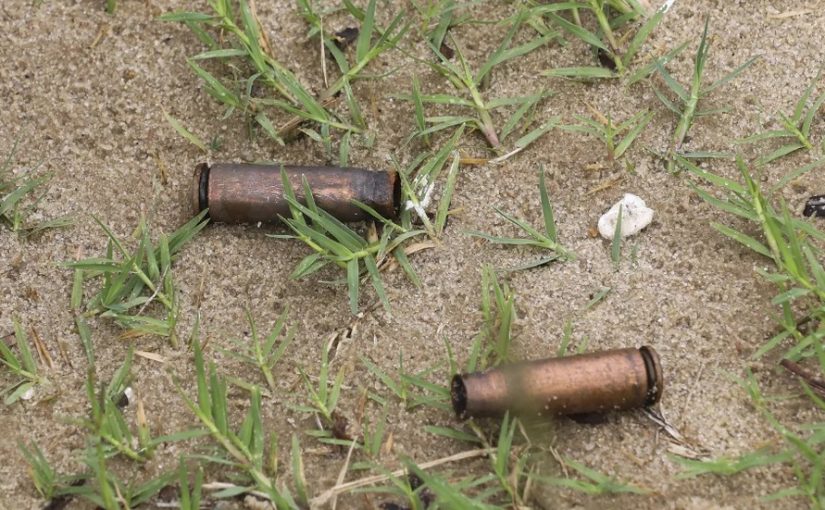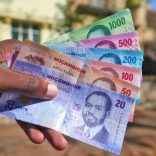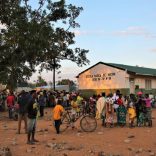Mozambique: At least two insurgents killed in clashes in Cabo Delgado - official
Mozambique: Fresh rebel attacks bid to counter government ‘propaganda’ – analyst

FILE - For illustration purposes only. [File photo: Lusa]
The latest round of attacks by armed rebels in northern Mozambique are aimed at countering the “victorious vision” portrayed by the government after its large-scale offensive against them, with the incursions – which have claimed several civilian and military lives – not representing anything new, according to Mozambique analyst and researcher João Feijó.
“This isn’t exactly new,” Feijó, a researcher at the Observatório do Meio Rural (OMR), a non-governmental organisation, and author of several works on armed violence in Cabo Delgado province, told Lusa on Tuesday. “The attacks have always continued, with more or less intensity, with greater or lesser violence: the insurgents have moved around and have always had contact with the population.”
Armed groups have carried out new attacks in the districts of Macomia and Mocímboa da Praia in recent weeks, with responsibility for some of these claimed by a local affiliate of Islamic State, causing several deaths and prompting many residents to flee, a situation that worsened in December.
According to Feijó, the latest attacks by insurgent groups are a response to the “propaganda” put out by the government about the restoration of security in Cabo Delgado province, which he noted aims to “send an international message to investors that [French energy multinational] Total can return” to resume work on a major natural gas project.
In fact, Feijó said, the attacks in northern Mozambique have never stopped and the insurgents live among the population, from whom they acquire what they need “at generous prices” and “continue to have information, food support and recruitment capacity.
“Now what’s happening is that [the new attack] has been in the news; now they’ve carried out spectacular attacks to counter this victorious vision of the Mozambican government, which is their main opponent,” he added.
The fresh attacks come at a time when the Southern African Development Community Military Mission (SAMIM), which is supporting Mozambique’s forces in the fight against the insurgents, is preparing to leave the country in July. By contrast, Rwanda, which has also supported the country with troops, has expressed its willingness to expand its combat operations in Cabo Delgado Its troops are mainly operating on the perimeter of the Rovuma Basin natural gas project overseen by TotalEnergies, work on which was suspended due to an attack in 2021, near the project’s infrastructure in Palma district.
According to Feijó, the decision on whether Mozambique will seek the expansion of Rwanda’s operations in the province will be taken by the home countries of major investors in Cabo Delgado, namely France and the US, as Mozambique “is only a passive subject that accepts the conditions imposed by third parties.”
The researcher also stressed the Rwandan army’s fighting capacity, its discipline, its apparent good relationship with the population and its mastery of the local language as some of the factors that could also contribute to Rwanda staying in Mozambique.
“Mozambique is emerging as a territory sacrificed for the extraction of these resources and someone has to guarantee security and it has been decided that the best investment is to support Rwanda rather than SAMIM,” he said of the two foreign forces, reiterating that “Mozambique does not have the final say in this decision.”
Feijó believes that the armed violence in that province “will continue for a long time” and that the death of the rebel leader, Bonomade Machude Omar, in August 2023, does not herald an end to the attacks.
“It’s not because they’ve killed a leader that this will end, because immediately afterwards another one appears, perhaps with a desire to avenge the previous one, or perhaps even more radical and violent,” he added.
Cabo Delgado province has been plagued by an armed insurgency for more than six years, with responsibility for some attacks claimed by a local affiliate of Islamic State. This has brought a heavy-handed military response since July 2021, with support from Rwanda and the SADC mission, liberating districts near gas projects.
The conflict has already displaced around one million people, according to the United Nations High Commissioner for Refugees (UNHCR), and caused around 4,000 deaths, according to the ACLED conflict registration project.












Leave a Reply
Be the First to Comment!
You must be logged in to post a comment.
You must be logged in to post a comment.